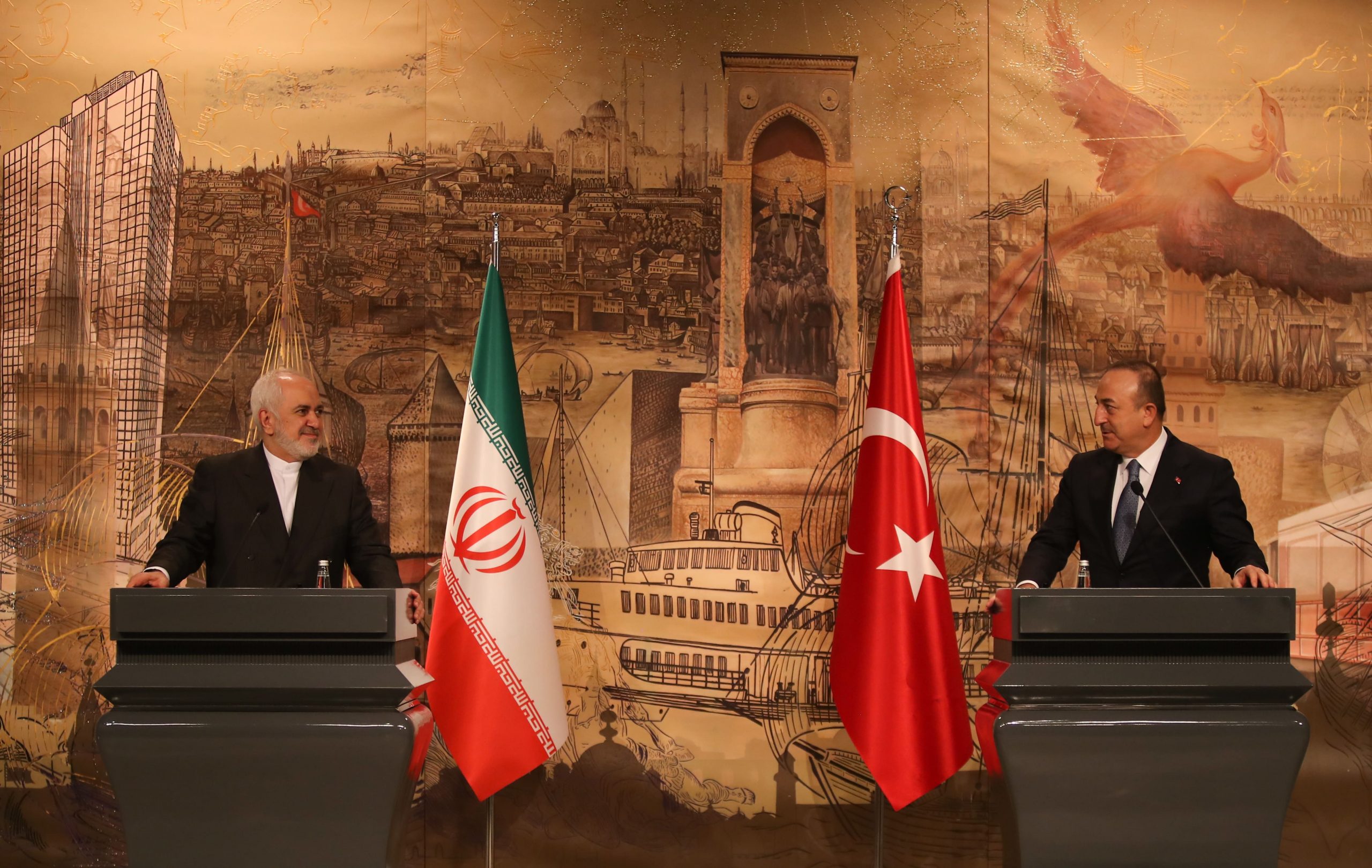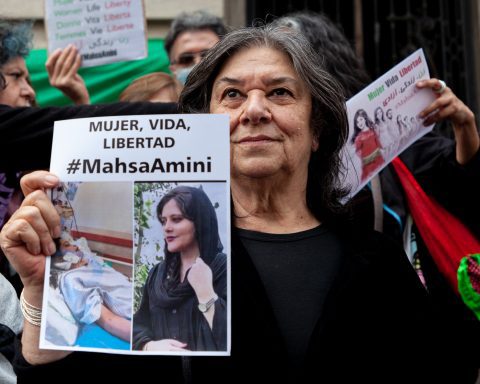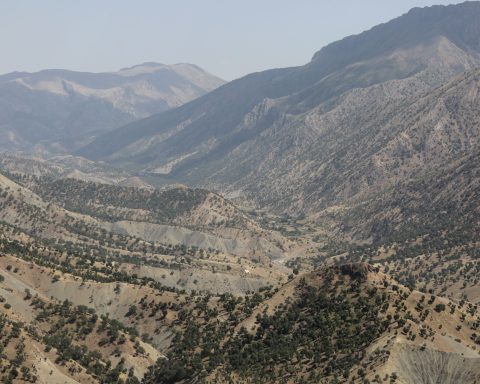With a record low voter turnout, Iranians elected the ultraconservative cleric and judiciary chief, Ebrahim Raisi, as their new president. Raisi’s victory came as a surprise to no one. As critics say, the elections were pretty much a carefully pre-planned operation aimed at producing this specific outcome after barring his most serious challengers from running and discouraging more than 50% of all eligible voters from casting their ballots. In this sense, it was more of a selection than an election. Yet, as past experience shows, world leaders will soon have to deal with the fact that Raisi is the President of Iran.
Turkey’s President Recep Tayyip Erdoğan congratulated Iran’s President-elect Raisi and hoped that Turkey-Iran ties would further strengthen during his presidency. In a message to Raisi, Erdoğan expressed his readiness for cooperation and willingness to visit Iran at the upcoming meeting of the Supreme Strategic Cooperation Council once the pandemic fades.
Despite having a high public profile, the President is not the highest ranked person in the structure of power in Iran. He nominally comes second after the Supreme Leader, who exerts political, ideological, and religious control over the system. In other words, the President of Iran has no decisive say in his country’s critical matters, policies, and priorities, especially if his position runs against that of the Supreme Leader. Therefore, there is no delusion in Turkey that the man who runs the show in Iran is the Supreme Leader rather than the President.
For some time, Raisi has been widely tipped off as the potential successor to the current Supreme Leader, Ali Khamenei. Accordingly, his position as president might be transitional and meant to prepare and promote him to the next post. Khamenei’s special attention and support for Raisi helped him advance through the system’s institutions and into un-elected positions during the last few decades. Raisi’s access to Iran’s deep financial resources and his relations with the country’s most powerful institution, the Islamic Revolutionary Guard Corps (IRGC), suggest that he might become a problematic figure for Turkish-Iranian relations.
Historically, and with very few exceptions in time and place, relations between Turkey and Iran have always been characterized by rivalry and conflict rather than cooperation and coordination. In modern times, the 2011 Arab uprisings have fueled the competition between regional rivals unprecedentedly. Whether reformers or hardliners, the nature of the conflict did not change regardless of who is in power in Iran. The regional settings and the international environment have always had a significant impact on the relations between the two countries.
From this standpoint, one can assume that Turkey’s relations with Iran during Raisi’s era will be pretty much influenced by two main factors: the US policies towards Tehran and the re-alignment of regional powers. Therefore, depending on these settings and the different incorporated scenarios, the relations between Ankara and Tehran might swing between limited cooperation, competition, and indirect confrontation.
Under Raisi’s presidency, Ankara will be certainly interested in increasing the volume of bilateral trade and the level of investments with Iran to boost the economic relations between the two countries. However, geopolitical and foreign policy issues will continue to overshadow this aspect and pose challenges to their ties, especially in the Middle East, the Caucasus, and Central Asia.
Although Turkey has been one of the few regional powers that did not oppose the JCPOA, Iran’s nuclear deal resumption will embolden Tehran regionally. An agreement between the Biden administration and Iran will provide Tehran with the necessary means to challenge and even threaten Turkey in critical theatres such as Syria and Iraq.
If the JCPOA is reactivated at any point, more financial resources, weapons, and support will go to Iran’s allies and proxies in the region. In the last few months, Ankara has witnessed the negative implications of the latest US sanctions relief for Iran. Amid the Vienna nuclear talks, the pro-IRGC Shiite militias in Iraq became more inclined to threaten Ankara publicly and back the PKK’s presence in northern Iraq. In one case last February, Iran’s TV al-Alam broadcasted a video of an IRGC-backed Iraqi Shiite militia targeting a military post in Turkey in northern Iraq. Several reports have indicated that Iranian officials met with PKK leaders in Iraq last March.
Under Raisi, Iran shows no signs of abandoning its full support for the Assad regime in Syria. The same can be said about its military presence in the country and its sectarian militias’ proliferation. Assad is already resuming his attacks against civilians in Idlib. The continued support for the Assad regime will complicate Ankara’s efforts to stabilize Syria, hinder its endeavors to voluntarily and safely return more than 10 million Syrians to their homes, and halt the process of producing a new legitimate government in the country.
The strengthening of relations between Turkey and both Azerbaijan and Pakistan and Ankara’s latest offer to secure Kabul’s international airport in Afghanistan will open a new geopolitical front with Iran during Raisi’s period. Last year, with the support of Turkey, Azerbaijan managed to liberate its land from the Iran-backed Armenian occupation. The Iranian officials reacted negatively and showed great sensitivity towards Ankara’s increasing role in the Caucasus.
Due to its geographic location and political orientation, Tehran has been hindering Ankara’s capacity to increase its economic interaction and strengthen its relations with Central and South Asian countries. However, the new planned Zangezur corridor, which will connect Turkey through Nakhchivan to Azerbaijan via Armenia, will help Ankara bypass Iran and thus strengthen its influence.
While Turkey will express cooperation and attempt to include Iran in some regional initiatives in order to neutralize its ability to undermine Ankara’s regional interests, there is no guarantee that such a step will persuade the Iranians to change their aggressive behavior. Yet, this claim has to be tested against the next moves of the Biden administration and Turkey’s relations with some regional countries in the coming period, especially with Saudi Arabia.














